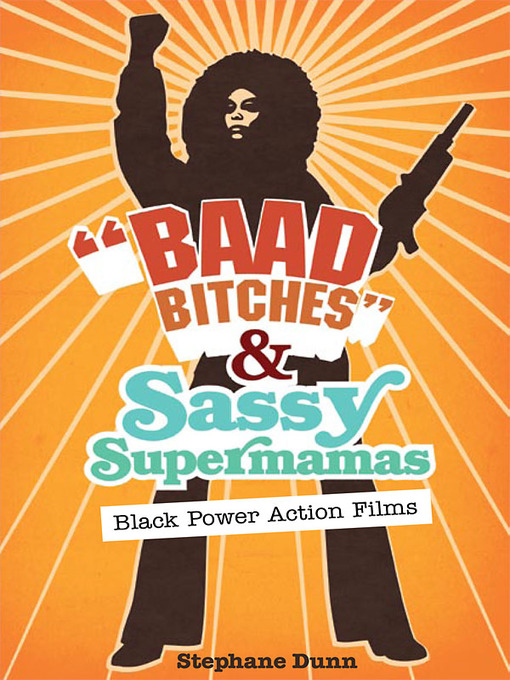Blaxploitation action narratives as well as politically radical films like Sweet Sweetback's Baadasssss Song typically portrayed black women as trifling "bitches" compared to the supermacho black male heroes. But starting in 1973, the emergence of "baad bitches" and "sassy supermamas" reversed the trend as self-assured, empowered, and tough black women took the lead in the films Cleopatra Jones, Coffy, and Foxy Brown.
Stephane Dunn unpacks the intersecting racial, sexual, and gender politics underlying the representations of racialized bodies, masculinities, and femininities in early 1970s black action films, with particular focus on the representation of black femininity. Recognizing a distinct moment in the history of African American representation in popular cinema, Dunn analyzes how it emerged from a radical political era influenced by the Black Power movement and feminism. Dunn also engages blaxploitation's legacy in contemporary hip-hop culture, as suggested by the music's disturbing gender politics and the "baad bitch daughters" of Foxy Brown and Cleopatra Jones, rappers Foxy Brown and Lil' Kim.
|PrefaceAcknowledgments
Introduction: Race, Gender, and Black Action Fantasy
1. The Pleasure of Looking: Black Female Spectatorship and the Supermama Heroine
2. Black Power and the New Baad Cinema
3. What's Sex and Women Got to Do with It? Sexual Politics and Revolution in Sweetback and The Spook
4. Race, Gender, and Sexual Power in Cleopatra Jones
5. Sexing the Supermama: Racial and Gender Power in Coffy and Foxy Brown
Afterword: Superbaad for the Twenty-First-Century Screen
Notes
Works Cited
Index|
"Intellectually stimulating and immediately accessible."—Atlanta Journal-Constitution
"Using a variety of informal polls, surveys, and friend-girl networks, Dunn reconstitutes the very nature of the female gaze for postmodern Black women."—Multicultural Review
"An irreverent and well-intentioned appeal to rethink how we talk about black women in popular culture as capable of being both sexy blues women and erudite thinkers."—Journal of American Ethnic History
|Stephane Dunn is a professor and academic program director of the Cinema, Television, & Emerging Media Studies program at Morehouse College.

